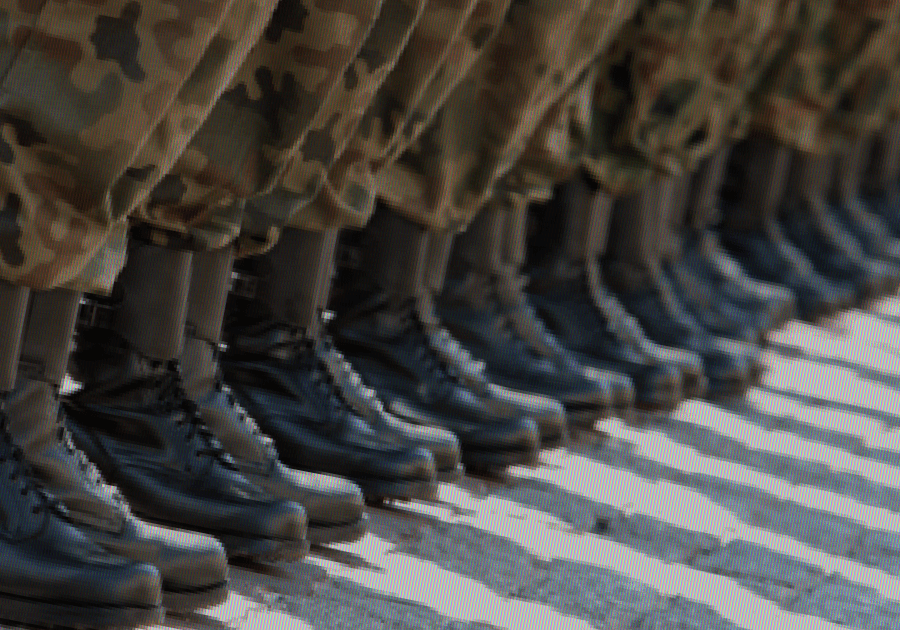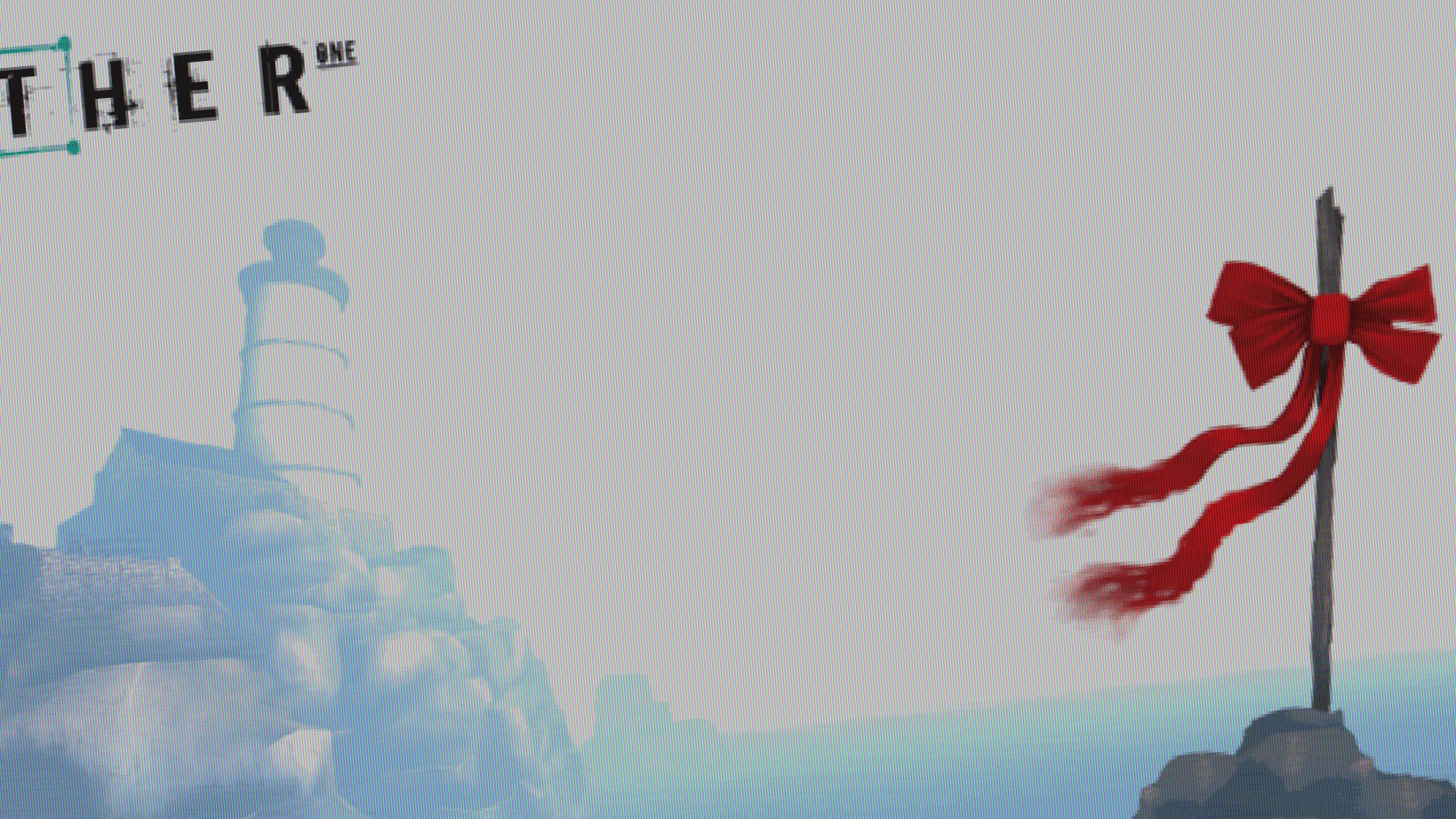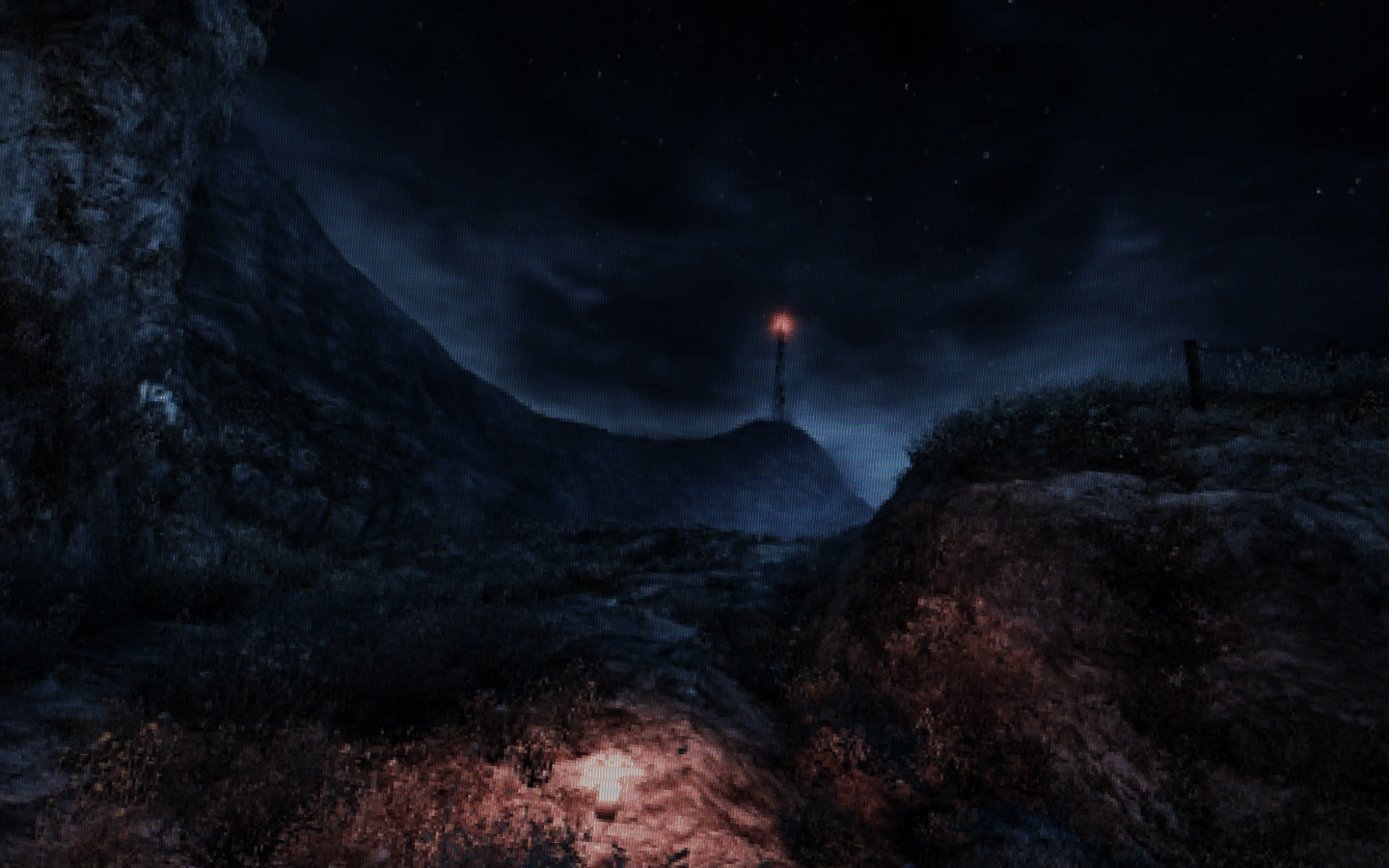FTL: Faster Than Light - Mind structures
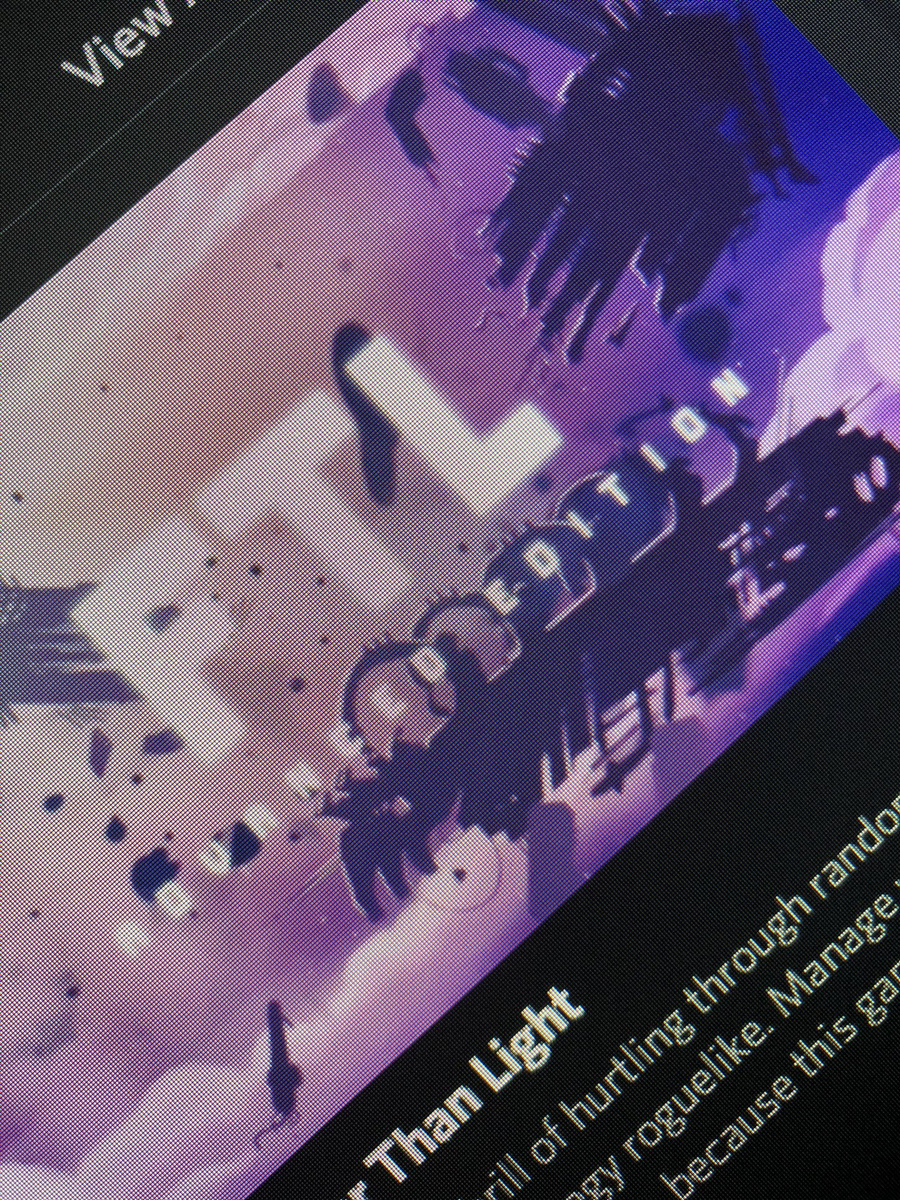
Faster Than Light is a well praised space-exploration game, and possibly one of the fathers of the "roguelike-like" genre. And father is a fitting term because it came out a whopping six years ago in 2012. You know, the year of the original Telltale's Walking Dead.
It also never had an official translation until now, which means that for six long years people either played it in English or through a (characteristically) hyper-literal fan translation.
So, when we were tasked with translating it a few months ago, we thought how to please those hardened fans, and immediately bumped into two main issues
Troubling words
The first issue was the main game currency: scrap. The English term is quite flexible since it can both refer to discarded metal ("we sold it for scrap") and to a generic fragment of something ("I wrote on a scrap of paper").
But the only Italian equivalent (rottame) really isn't. Like the term wreckage in English, not only it mostly echoes metal, but is usually uncountable. You see yourself collecting some wreckage, but you trade "three wreckages for two rockets".
The second issue was weapons.
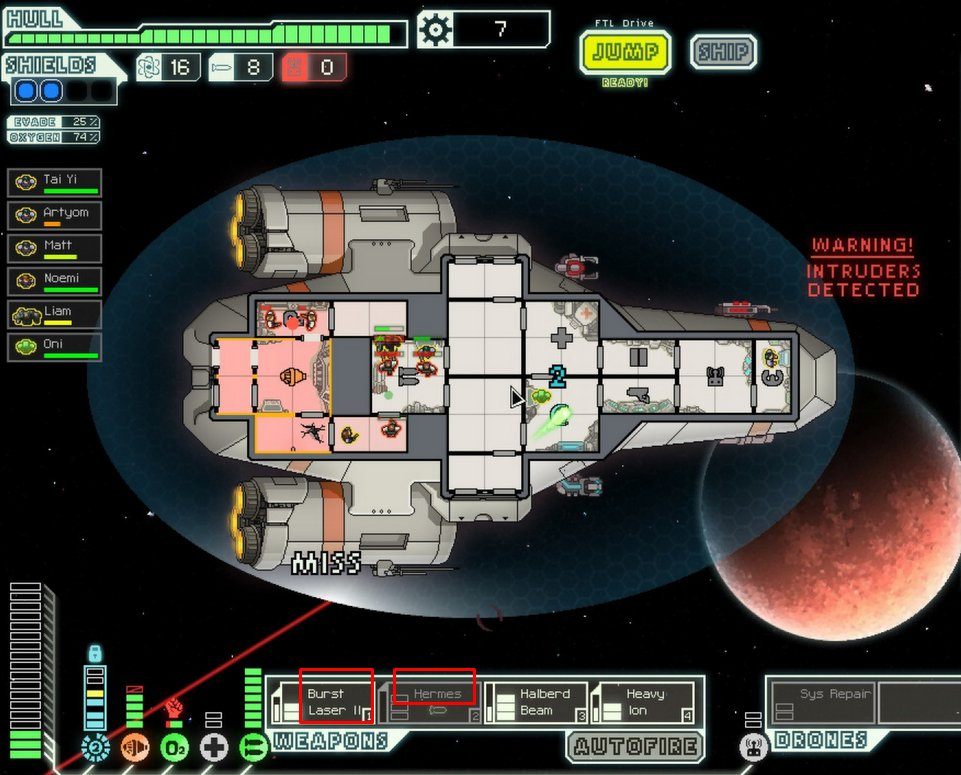
Since the main play area is the diagram of the ship, the fine people at Subset Games (rightly) chose to devote most of the screen to it, squeezing the weapons in a tiny control panel at the bottom of the screen.
And since English words are usually short, they didn't have much trouble in getting by with six characters for their names (on one or two lines, depending on type)
But words in romance languages like ours are usually ~20% longer (we slot in a lot of vowels) and no matter how hard we tried, a direct translation simply wouldn't fit until we reduced it to a letter soup like "Las P. II" or "Las. C. I"
One big benefit of being a team is that choices like this don't fall only on one person. The term "work by committee" has a bad image, but there's a lot of merit in shaping the trajectory of a project through different and even diverging views. And we agreed that a straight translation would not work here, that sticking to the letter of the word was less important than building something with good internal logic and structure.
It made sense for the fans to keep a lens on each word to be sure they were well understood, that no liberties were being taken with the source material. But, as professionals, our duty was to raise our sight high enough to see how those words were fitting together.
And to do that, we needed Gestalt.
E pluribus unum
Quick, what do you see in this picture?
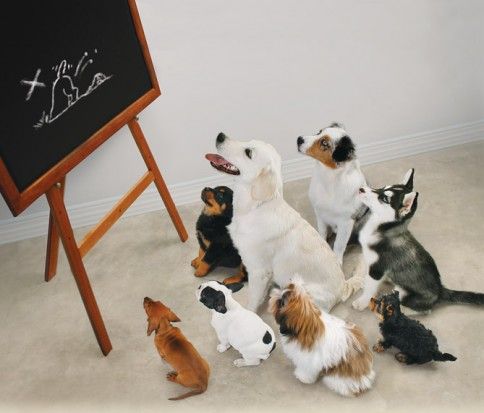
If you answered "A puppy school!", congratulations, you just experienced Gestalt.
The world around us is so complex and detailed that it would be unmanageable for our brain to process each single detail. Luckily for us, it doesn't.
In this case, without even realizing, you glanced at one of those four-legged animals, deduced it's a dog, sub-categorized it as a puppy, inferred that those around it would be puppies too, confronted their position as a group with that of the blackboard, drew a parallel with the stereotypical picture of kids at school, looked at the "lesson" and confirmed: it's a puppy school.
You went from a random assortment of rug, fur and wood to an abstract metaphor in a few tenths of second because you mentally simplified the picture in concepts and groups. You didn't check all the details: you don't even know how many dogs are there, you just leaped to the concepts.
Now, while Gestalt is mostly a graphic design concept, I find it very helpful in describing the conceptual work behind game terminology. After all, if our goal is to teach these new, complex, often counter-intuitive virtual worlds, why not following the patterns of our real world?
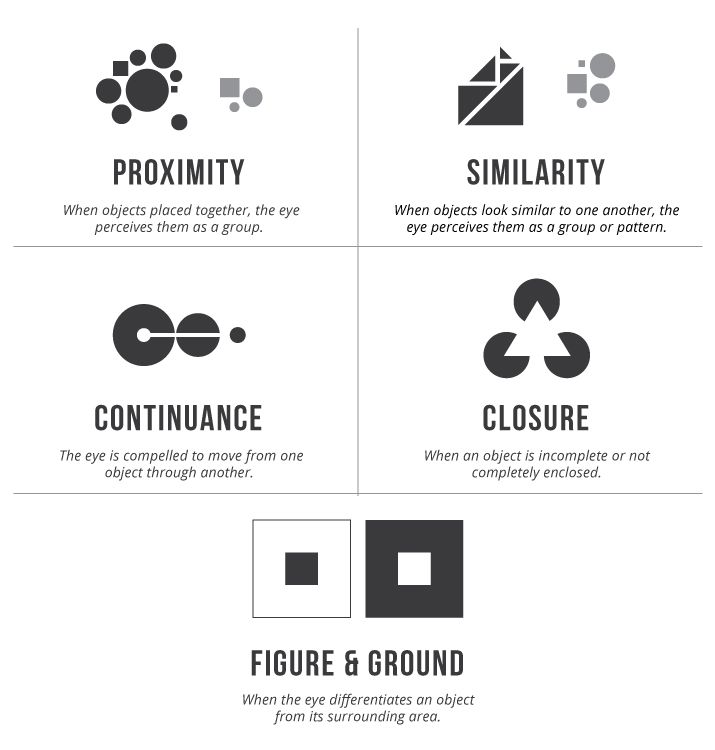
Back to our game
As mentioned above, we were on the fence for aesthetic reasons: clumsy metaphors are bad and shortenings are worse. But had it been just for that, pleasing the fans could have been reason enough to accept it as jargon.
But the main push was Gestalt. This is a somewhat abstract game where most things are never shown on screen. Case in point, the four game "currencies" (fuel, missile, drone parts, scrap) only appears as this set of icons and names. That is all you get.

In this perspective, translating "5 scraps" as "5 wreckages" isn't just awkward (something we could survive with) but breaks this group of currencies from "things you can scavenge on board of a ship" to "things you scavenge, plus shipwrecks for some reason".
We needed something else. Since the core meaning we were looking for is that of a small piece of something, we took a cue from the setting and imagined that these ships were built with interchangeable elements: modules.
And with that, it all made sense again: scrapping a ship for modules, using modules to upgrade your ship, trading modules at the next station. Nice and smooth.
Similarly, making a straight translation of weapons and then fitting them into the six character we had left us with random names and terms scattered around, with no structure in sight. How would you know that "Heavy" is stronger than "Double" if there's no space to say "laser"?
With Gestalt: when you see Laser > Phaser > Maser > Scorcher > Driller side by side, you can infer that they are related (by proximity), that they are ray weapons (by similarity), and that scorcher/driller have opposed effects (by symmetry). They can be simple six letter names because Gestalt is working from the outside to structure them in your mind.
Needless to say, this is not exact science. Naming the weapons Laser 1, Laser 2 and Laser 3 would give the maximum legibility, but would also kill all flavor, so you need to keep enough "real world" randomness in there to keep things interesting.
And that's the game Italian players of FTL can play from today onwards. A game where you collect modules and drone chips and shoot phasers and masers. A painful compromise that can't make everyone happy but, in our opinion, still the best game Italian players can have. Even if you hate it.
Thank you for reading!
Links
Gestalt - The Parts and the Whole - Gestalt in video
Original Twitter thread - Thanks to everyone who shared and commented
FTL Advanced Edition - Great game, now in Italian :)
